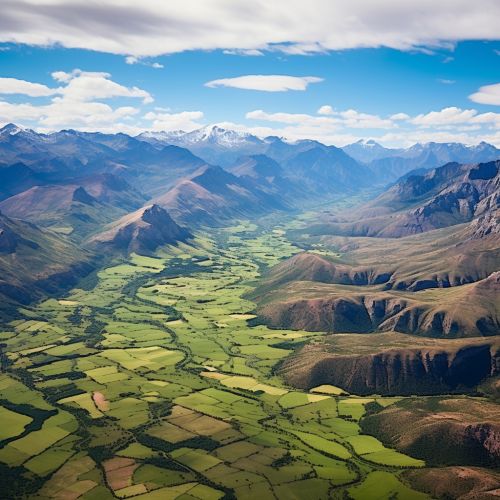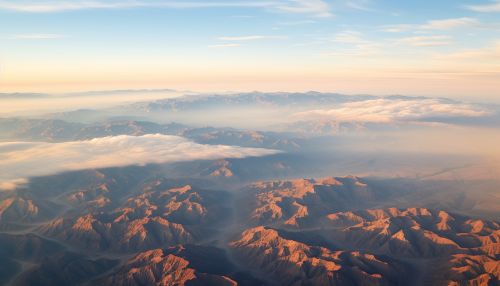Argentina
Geography
Argentina, officially known as the Argentine Republic, is located in the southern part of South America. It is the second-largest country in South America after Brazil, and the fourth-largest country in the Americas. The country is bordered by Chile to the west, Bolivia and Paraguay to the north, Brazil to the northeast, Uruguay and the South Atlantic Ocean to the east, and the Drake Passage to the south.


Argentina's geographical diversity is vast, with landscapes ranging from the arid deserts of the Northwest, the fertile plains of the Pampas, the subpolar forests of Tierra del Fuego, to the towering peaks of the Andes Mountains. The country's highest point, Aconcagua, is located in the province of Mendoza, and at 6,962 meters, it is the highest peak in the Americas.
History
The history of Argentina can be divided into four main parts: the pre-Columbian time or early history (up to the sixteenth century), the colonial period (1530–1810), the period of nation-building (1810–1880), and the history of modern Argentina (from around 1880).
The earliest recorded human presence in the area of modern-day Argentina dates back to the Paleolithic period. The Inca Empire expanded into the northwest of the country in Pre-Columbian times. The country has its roots in Spanish colonization of the region during the 16th century. Argentina rose as the successor state of the Viceroyalty of the Río de la Plata, a Spanish overseas viceroyalty founded in 1776.
Economy
Argentina has a mixed economy with a high rating on the Human development index and a relatively high GDP per capita, with a considerable internal market size and a growing share of the high-tech sector. A middle emerging economy and one of the world's top developing nations, Argentina is a member of the G-20 major economies.
Historically, Argentina's economy has been characterized by periods of growth and recession. The country has rich natural resources, a well-educated population, a diversified industrial base, and an export-oriented agricultural sector. The country's economic performance has historically been very uneven, with high economic growth alternating with severe recessions, income maldistribution, and—in the recent decades—increasing poverty.
Culture
Argentina is known for its rich cultural life. Argentine literature is one of the most dynamic and diverse in Latin America. The country has produced six Nobel Prize winners and boasts the highest book readership in Latin America. Argentina's visual arts, music, literature, and lifestyle have influenced Latin America and beyond.
Argentinian music is varied and includes traditional folk music, tango, and rock, among other genres. The country's dance culture is dominated by the tango, which originated in Buenos Aires and is known for its sophisticated steps and sultry movements.
